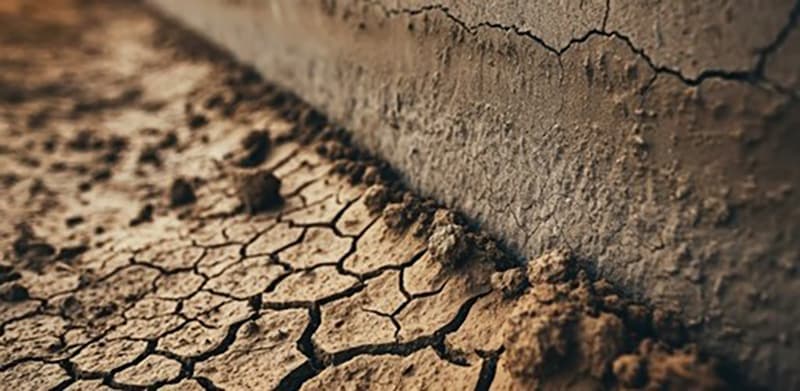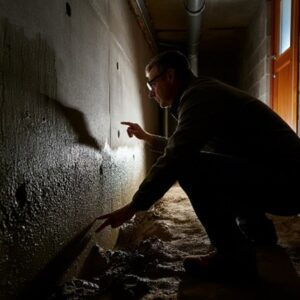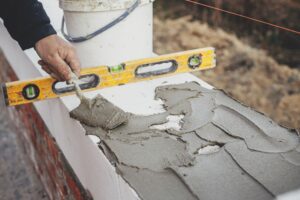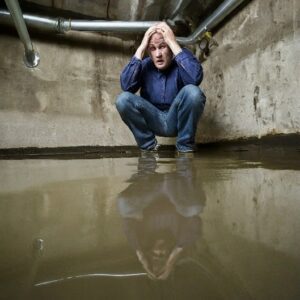We’ve had a pretty dry summer here in Edmonton. While the extra warm weather makes for more rounds of golf and awesome weekend camping trips, the resulting dry soil conditions it causes can really mess with your foundation. This is especially concerning for Alberta homes, which are primarily constructed on a clay soil base.
Foundation issues are among the most severe and costly problems homeowners face, and dry soil conditions can directly contribute to them. Whether caused by drought, poor drainage, or simply a lack of regular watering, dry soil can create long-term damage that may compromise the structural integrity of your home.
Understanding how dry soil impacts your foundation is crucial to preventing expensive repairs and maintaining a stable home.
How Dry Soil Affects Your Home’s Foundation
The primary way dry soil affects a foundation is through shrinkage. Most homes in and around Edmonton are built on clay or expansive soils, which are known for their ability to change in volume as they absorb and lose moisture. During extended periods of dryness, the moisture content of the soil decreases, causing it to contract. This process, called soil shrinkage, creates gaps between the soil and the foundation. The following are the most common issues dry soil can cause:
Foundation Settlement: As the soil beneath your home dries out, it loses its support capabilities, which leads to the settlement of the foundation. Uneven settlement can cause parts of your home to sink more than others, resulting in cracks in walls, floors, and ceilings, as well as doors and windows that are difficult to open or close.
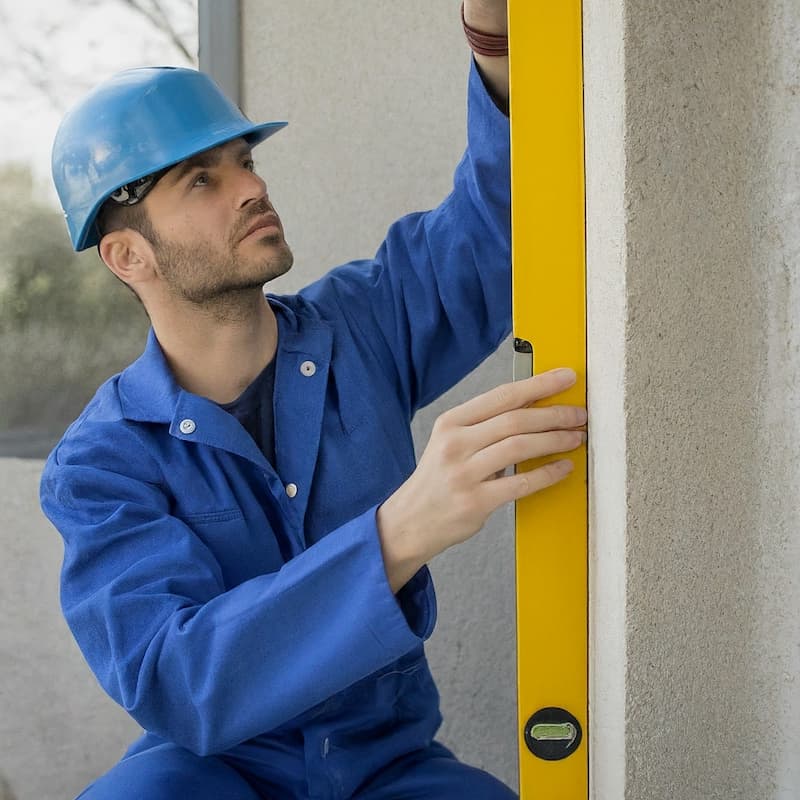
Cracks in the Foundation: When soil shrinks, it leaves space for the foundation to move. As the foundation shifts, it may crack, especially in slab-on-grade foundations or concrete footings.
Foundation cracks are not only unsightly but can also allow water to seep into the home during periods of heavy rainfall, potentially leading to flooding, mold growth, or rot.

Soil Erosion: In some cases, dry soil can increase the risk of erosion. This occurs when loose, dry soil is blown away by wind or washed away by sudden rains. Erosion can weaken the foundation’s stability over time, leading to further settlement and structural damage.
Plumbing Issues: Dry soil can also affect underground plumbing, especially if the pipes beneath your home shift due to foundation movement. Cracked or broken pipes can result in leaks, leading to further moisture problems beneath the home. Ironically, the introduction of excess moisture after a period of dryness can cause the soil to expand again, contributing to a cycle of shifting and
instability.

The Long-Term Impact of Dry Soil on Your Home
If left unchecked, dry soil conditions can lead to severe and expensive foundation problems.
Cracks in the foundation can worsen over time, allowing moisture to enter the home, which may lead to further structural damage, mold growth, and poor indoor air quality. Foundation settlement can also become more pronounced, creating uneven floors and gaps in walls that are difficult to repair without significant investment.
Additionally, foundation problems due to dry soil can lower the value of your home. Potential buyers may be deterred by visible cracks, uneven floors, or the cost of necessary repairs. A home with a compromised foundation can also be more difficult to insure, leading to higher premiums or even coverage denials.
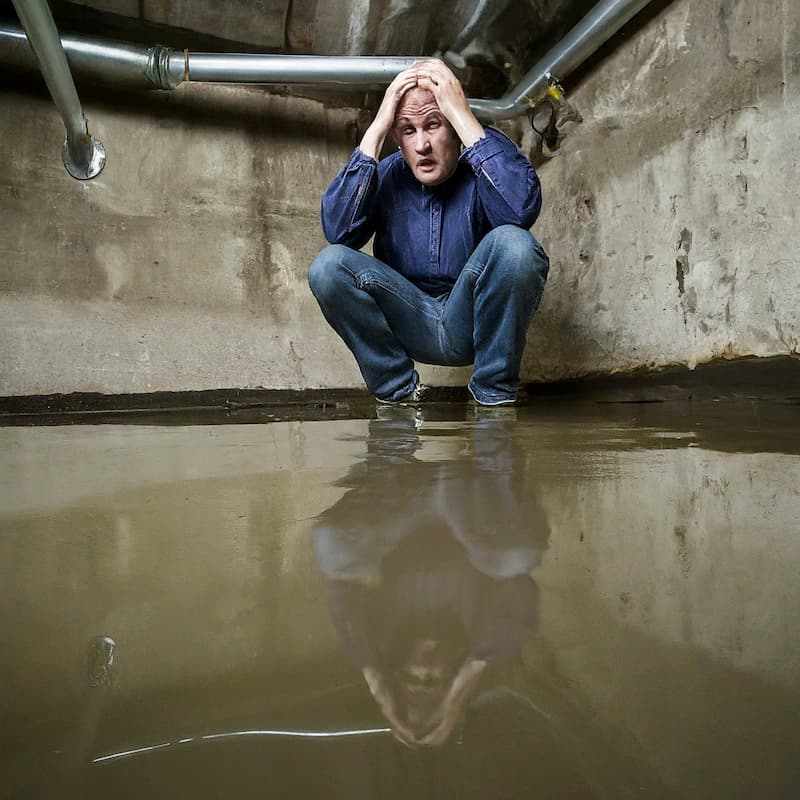
Preventing Foundation Damage from Dry Soil
While you can’t control the weather, there are steps you can take to minimize the risk of dry soil affecting your foundation:
Maintain consistent moisture levels: Watering the soil around your foundation during dry periods can help prevent soil shrinkage. However, it’s essential not to overwater, as excessive moisture can lead to soil expansion.
Improve drainage: Ensure that your home has proper drainage to direct water away from the foundation. This helps prevent both overly dry and overly wet conditions.
Install a foundation irrigation system: In areas prone to drought, a drip irrigation system installed around the foundation can help maintain consistent soil moisture.
Inspect and maintain your foundation: Regularly inspect your foundation for cracks or signs of movement. If you notice any issues, contact a foundation specialist for assessment and repair.
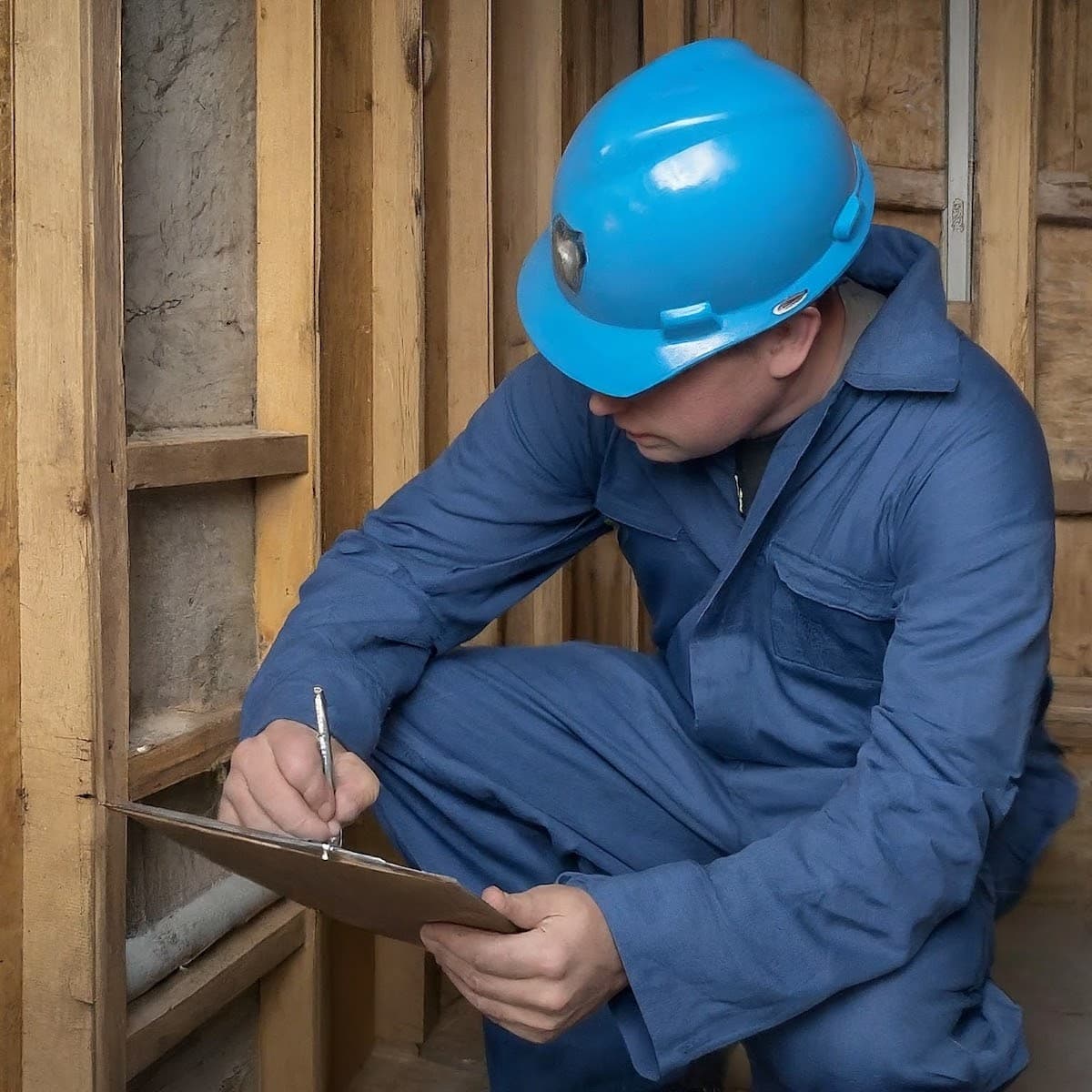
Conclusion
Dry soil can have serious effects on your home’s foundation, leading to costly repairs and structural damage. By understanding the risks and taking proactive steps to protect your foundation, you can prevent long-term issues and preserve the value of your home.
Proper maintenance, regular inspections, and attention to soil moisture levels are key to avoiding the detrimental effects of dry soil on your home’s foundation.
If you suspect any of the issues mentioned above, Shield Foundation Repair offers foundation inspections. Give us a call at 780-760-4900 today to speak with one of our friendly staff and get your peace of mind back.
